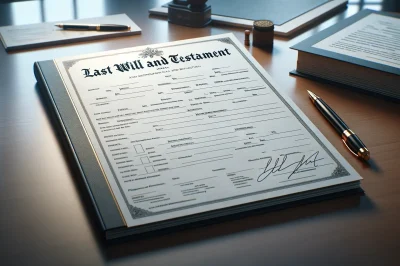Table of Contents

According to the Society of Will Writers, only about a third of the people in the UK have made a will. For those who of you have, you need to be mindful that your will needs to be reviewed every three to five years or if your circumstances change. Unfortunately, people’s lives change all the time and they don’t always get round to reviewing their wills when they should.
Sometimes, when a person becomes ill or is losing mental capacity, reviewing their will may be bottom of the list in terms of priority, and it may be too late in terms of having the necessary capacity to make a will.
Under the Mental Capacity Act 2005 (MCA 2005) s1(1), capacity must be presumed unless proven otherwise. So, if it is determined a person does not have the appropriate level of mental capacity, then they cannot make a will. What happens next depends on the person’s personal and financial circumstances, their wishes and feelings and what is in their best interests.
Statutory Wills
In these circumstances, it may be possible to put in place a statutory will for them. A statutory will is the term for a will which is made on behalf of a person who lacks capacity to make their own will. It can only be made with the authority of the Court of Protection under s18(1) MCA 2005.
Examples of circumstances of when a statutory will should be considered are as follows:
- A gift in the current will has been revoked or is likely to be revoked and will not be part of the person’s estate due to its sale for instance to pay for care fees
- The person’s circumstances have changed dramatically since the last will was made such as a marriage, co-habiting, a significant increase or decrease in the size of their estate
- Provision under an existing will may not be in a beneficiary’s best interests such as a minor child or disabled beneficiary where it could better protected within a trust
- The person’s tax liability on death could be reduced with better planning.
- There are suspicions that a current will may not be valid for instance due to lack of capacity or undue influence.
- There is no will in place and there is a person or persons who might reasonably be expected to be provided for who do not come within the intestacy provisions.
An application for a statutory will should not be made merely to examine the current will’s validity but it could be in a person’s best interest to avoid conflict and upset regarding the estate.
If any of the above scenarios exist or there is uncertainty, advice should be sought from an expert like the team at Swansea Legal Solutions.
Applying for a Statutory Will
Although the Court’s permission is technically required to submit a statutory will application, there are exceptions to the general rule which will cover the majority of interested applicants.
The application must contain full details of the person’s personal (including detailed medical evidence and evidence of lacking capacity) and financial circumstances, The application also needs to demonstrate why it is in the person’s best interest to have a statutory will in place. Evidence of the person’s past and present wishes and feelings, beliefs and values should also be included where possible.
Notice of the application needs to be served on all persons materially affected by the will and anyone holding confidential records such as solicitors holding the current will.
Once the court has received the application generally it issues it back to the applicant together with directions, which can often be complex.
Generally, a straightforward application for a statutory will would have taken approximately 6-8 months but could be longer if complicated or contested. If the person’s life expectancy is limited it is possible to expedite the application if medical evidence of the limited life expectancy is provided to the Court.
There are many issues which the Court will need to take into account before approving the statutory will and making an order for the applicant to execute it. The original is then sent to the court for sealing.
Swansea Legal Solutions
In summary, where a person lacks capacity to make will, it may be prudent to consider whether to make an application to the Court of Protection for a statutory will for them, where it is in their best interest to do so.
For further advice and guidance on this matters, call a member of the team at Swansea Legal Solutions today on 01792 420844 today.






